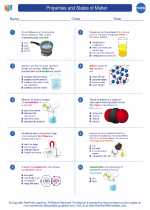Vitamins: An Overview
Vitamins are essential organic compounds that are required in small amounts for the normal functioning of the body. They are crucial for various physiological processes, including metabolism, immunity, and overall health. There are 13 essential vitamins that are categorized into two groups: water-soluble vitamins and fat-soluble vitamins.
Water-Soluble Vitamins
Water-soluble vitamins include vitamin C and the B-complex vitamins (B1, B2, B3, B5, B6, B7, B9, B12). These vitamins are not stored in the body to a significant extent and are excreted in the urine, which means they need to be consumed regularly through the diet.
Fat-Soluble Vitamins
Fat-soluble vitamins include vitamins A, D, E, and K. These vitamins are absorbed along with fats in the diet and can be stored in the body's fatty tissues and liver. Unlike water-soluble vitamins, excess fat-soluble vitamins can accumulate in the body and lead to toxicity if consumed in large amounts.
Sources of Vitamins
Vitamins can be obtained from a variety of food sources, including fruits, vegetables, dairy products, meat, fish, and fortified cereals. It's important to maintain a balanced diet that includes a variety of these food sources to ensure an adequate intake of all essential vitamins.
Functions of Vitamins
Each vitamin has specific functions in the body. For example, vitamin C is essential for collagen synthesis and immune function, while vitamin D is important for calcium absorption and bone health. Understanding the functions of each vitamin is crucial for maintaining overall health.
Vitamin Deficiencies and Toxicities
A deficiency or excess of vitamins can lead to various health issues. For instance, a deficiency of vitamin C can lead to scurvy, while an excess of vitamin A can cause hypervitaminosis A. It's important to be aware of the symptoms and consequences of both deficiencies and toxicities associated with different vitamins.
Study Guide
- Define vitamins and explain their essential role in the body.
- Differentiate between water-soluble and fat-soluble vitamins, providing examples of each.
- Discuss the sources of vitamins and the importance of a balanced diet in obtaining essential vitamins.
- Explain the specific functions of at least three different vitamins in the body.
- Identify and describe the health consequences of both vitamin deficiencies and toxicities.
◂Chemistry Worksheets and Study Guides High School. Properties and States of Matter

 Worksheet/Answer key
Worksheet/Answer key
 Worksheet/Answer key
Worksheet/Answer key
 Worksheet/Answer key
Worksheet/Answer key
 Vocabulary/Answer key
Vocabulary/Answer key
 Vocabulary/Answer key
Vocabulary/Answer key
 Vocabulary/Answer key
Vocabulary/Answer key
